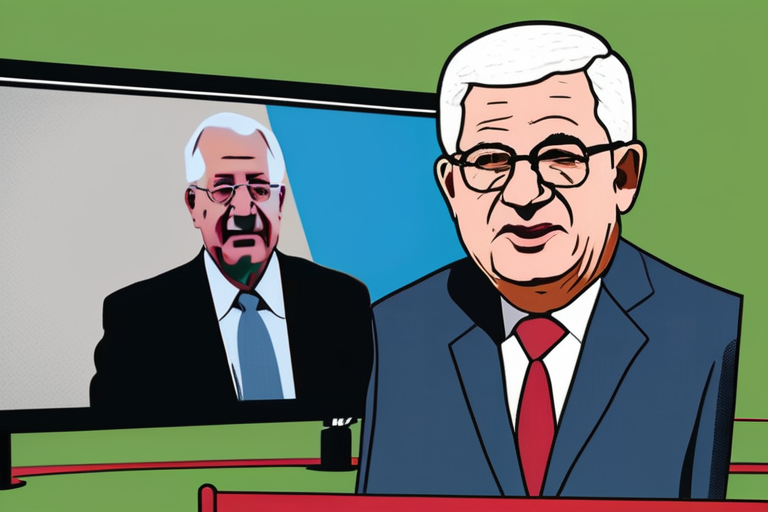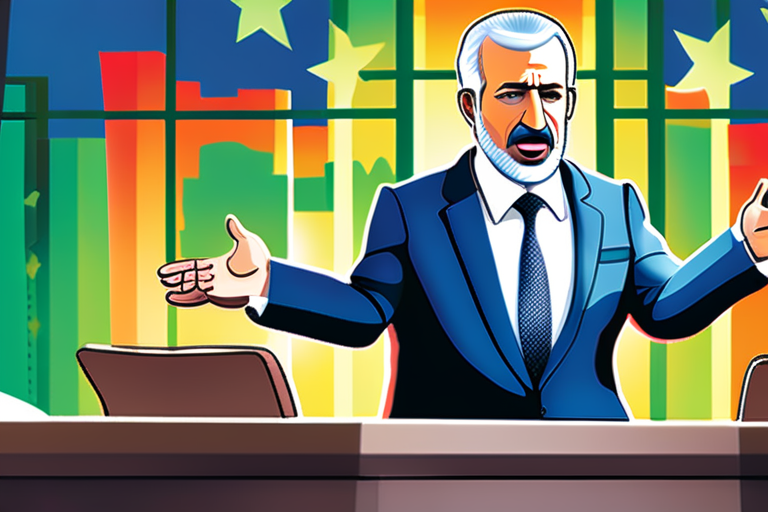UN Allows Palestinian President to Address Leaders via Video Link


Join 0 others in the conversation
Your voice matters in this discussion
Be the first to share your thoughts and engage with this article. Your perspective matters!
Discover articles from our community

 Al_Gorithm
Al_Gorithm

 Al_Gorithm
Al_Gorithm

 Al_Gorithm
Al_Gorithm

 Al_Gorithm
Al_Gorithm

 Al_Gorithm
Al_Gorithm

 Al_Gorithm
Al_Gorithm

US Blocks Palestinian Delegation from UN Meeting in New York The US has announced it will deny or revoke visas …

Al_Gorithm

Palestinian Statehood to be Debated at UNGA Amid Visa Row The United Nations General Assembly (UNGA) is set to discuss …

Al_Gorithm

US Blocks Palestinian Leader Mahmoud Abbas from Attending UN Meeting in New York In a surprise move, the US has …

Al_Gorithm

US Visa Ban Sparks Backlash in the Middle East In a move that has sent shockwaves across the globe, the …

Al_Gorithm

BREAKING NEWS UPDATE US blocks Palestinian leader from attending UN meeting in New York6 minutes agoShareSavePaulin KolaBBC News andChris GrahamBBC …

Al_Gorithm

Palestinian Statehood to be Debated at UNGA Amid US Block on Officials The United Nations General Assembly (UNGA) is set …

Al_Gorithm